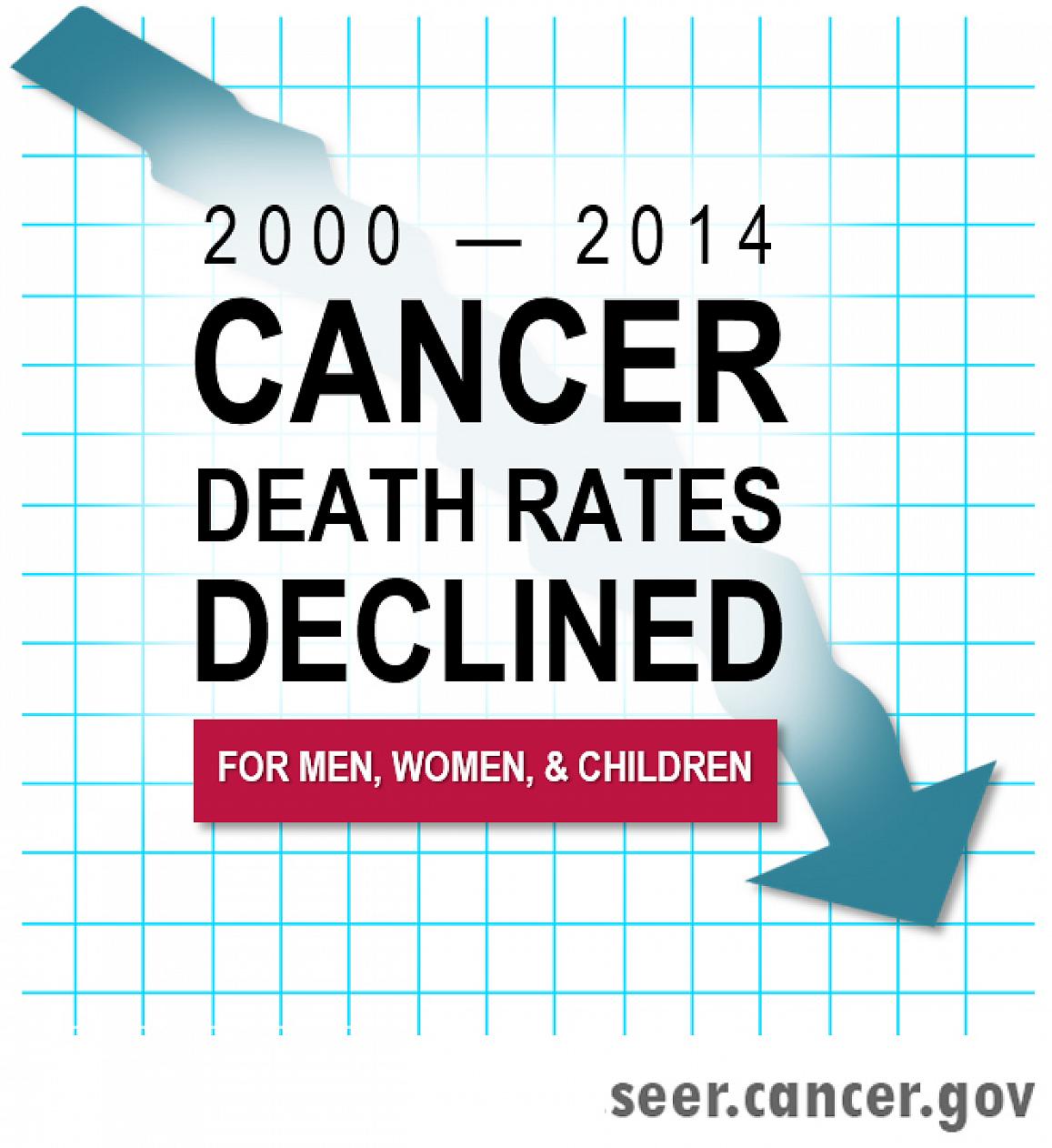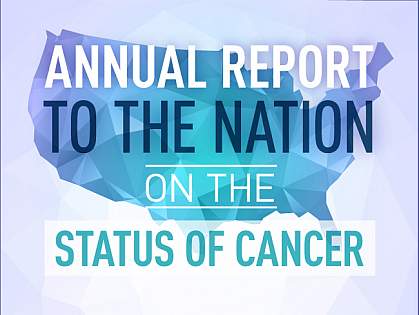Overall cancer death rates continue to decrease in men, women, and children for all major racial and ethnic groups, according to the latest Annual Report to the Nation on the Status of Cancer, 1975–2014. The report finds that death rates during the period 2010–2014 decreased for 11 of the 16 most common types of cancer in men and for 13 of the 18 most common types of cancer in women, including lung, colorectal, female breast, and prostate cancers. Meanwhile, death rates increased for cancers of the liver, pancreas, and brain in men and for liver and uterine cancer in women. The report finds overall cancer incidence rates, or rates of new cancers, decreased in men but stabilized in women during the period 1999–2013.
 The Report to the Nation is released each year in a collaborative effort by the American Cancer Society; the Centers for Disease Control and Prevention (CDC) and the National Cancer Institute (NCI), both parts of the Department of Health and Human Services; and the North American Association of Central Cancer Registries (NAACCR).
The Report to the Nation is released each year in a collaborative effort by the American Cancer Society; the Centers for Disease Control and Prevention (CDC) and the National Cancer Institute (NCI), both parts of the Department of Health and Human Services; and the North American Association of Central Cancer Registries (NAACCR).
The report appears early online in the Journal of the National Cancer Institute (JNCI) and includes a special section, which this year focuses on survival expressed as percentage. It finds that several but not all cancer types showed a significant improvement over time for both early- and
«While trends in death rates are the most commonly used measure to assess progress against cancer, survival trends are also an important measure to evaluate progress in improvement of cancer outcomes," said Ahmedin Jemal, D.
Compared to cases diagnosed in 1975–1977,
 Cancers with the lowest
Cancers with the lowest
«While this report found that
«This report found that
The authors also stated that more attention and resources are needed to identify major risk factors for common cancers, such as colorectal, breast, and prostate, as are concerted efforts to understand the increasing incidence trends in uterine, female breast, and pancreatic cancer.
«The continued drops in overall cancer death rates in the United States are welcome news, reflecting improvements in prevention, early detection, and treatment," said Betsy A. Kohler, M.P.H., C.T.R., executive director of NAACCR. «But this report also shows us that progress has been limited for several cancers, which should compel us to renew our commitment to efforts to discover new strategies for prevention, early detection, and treatment, and to apply proven interventions broadly and equitably.»


